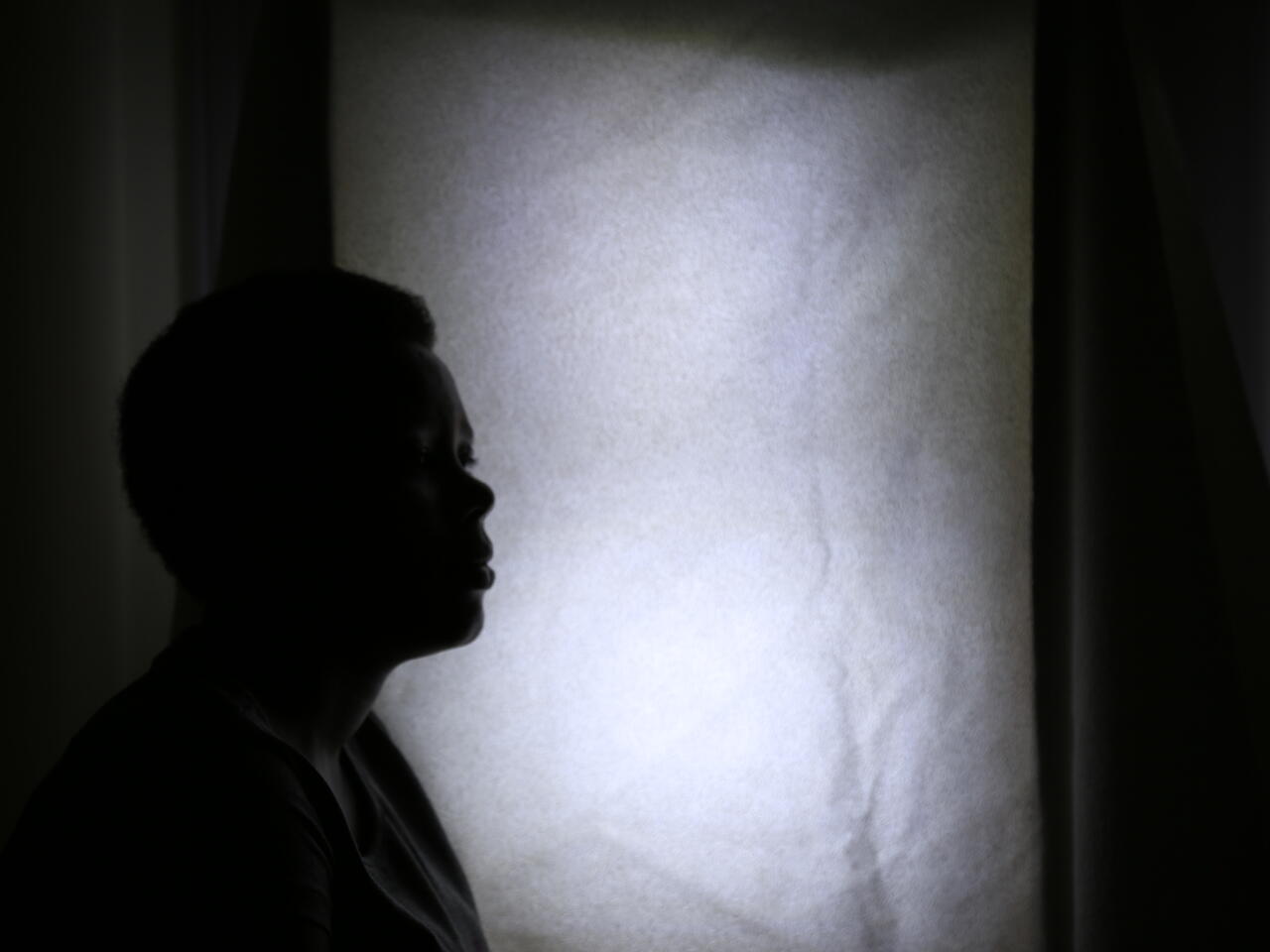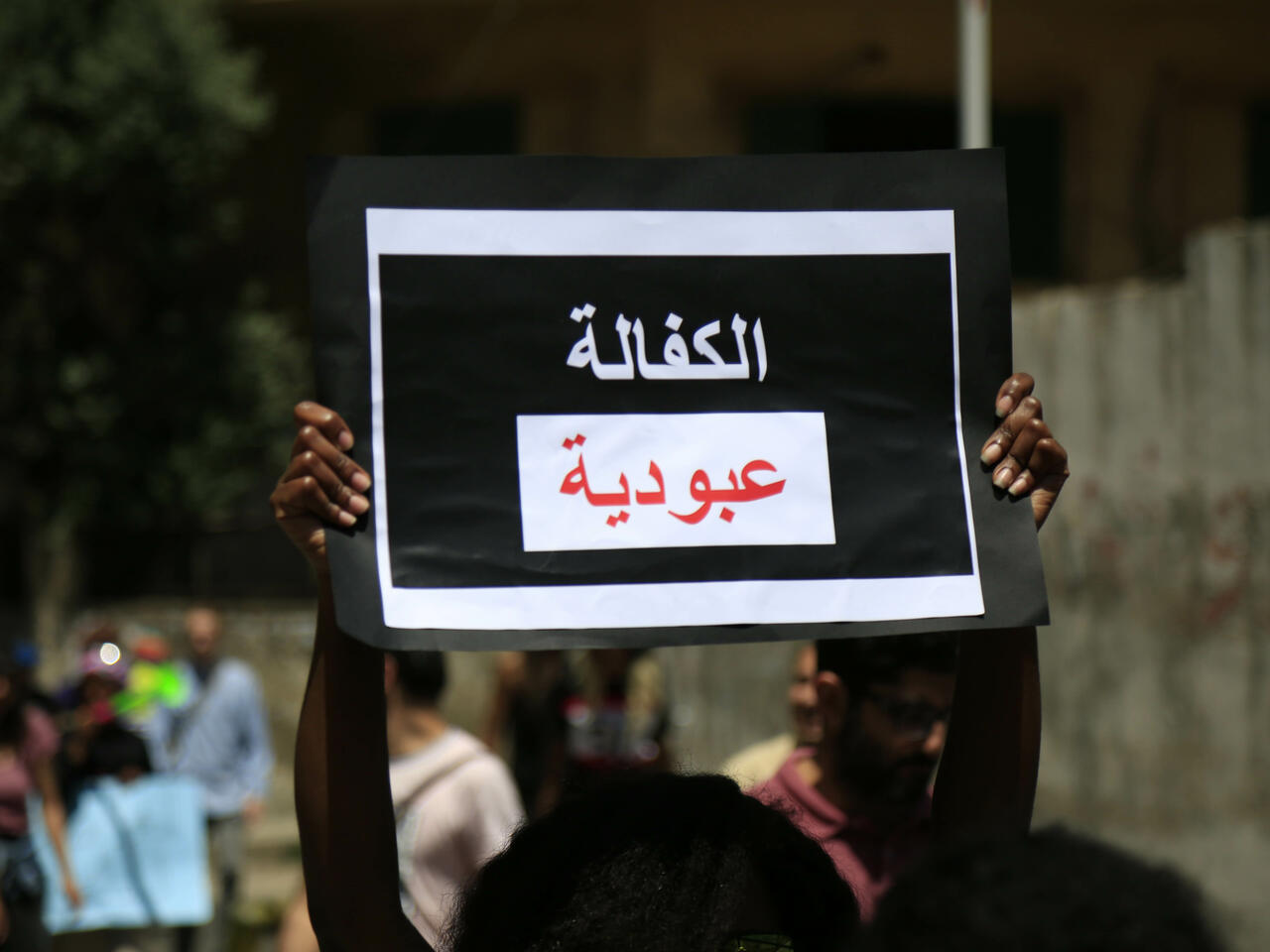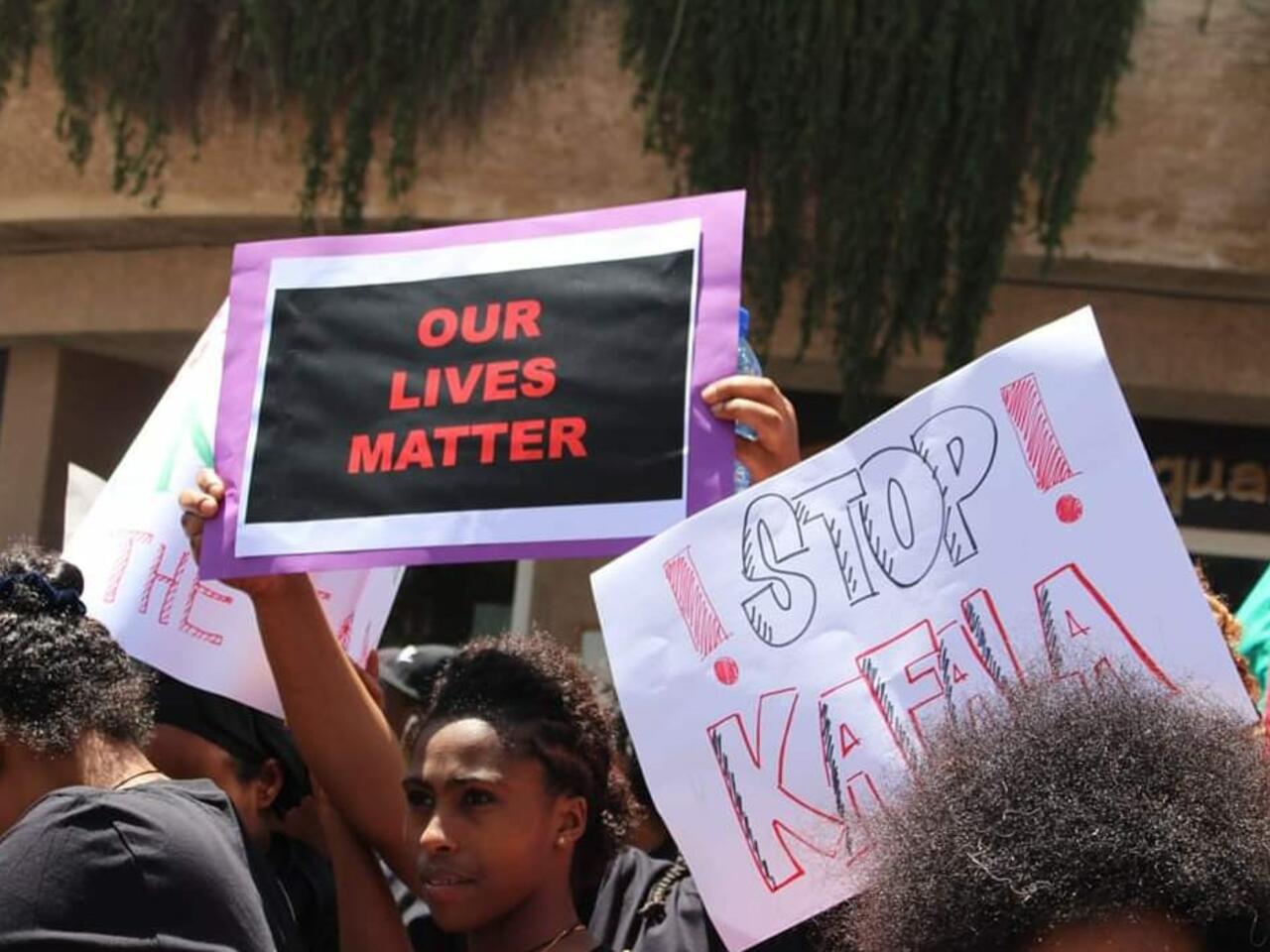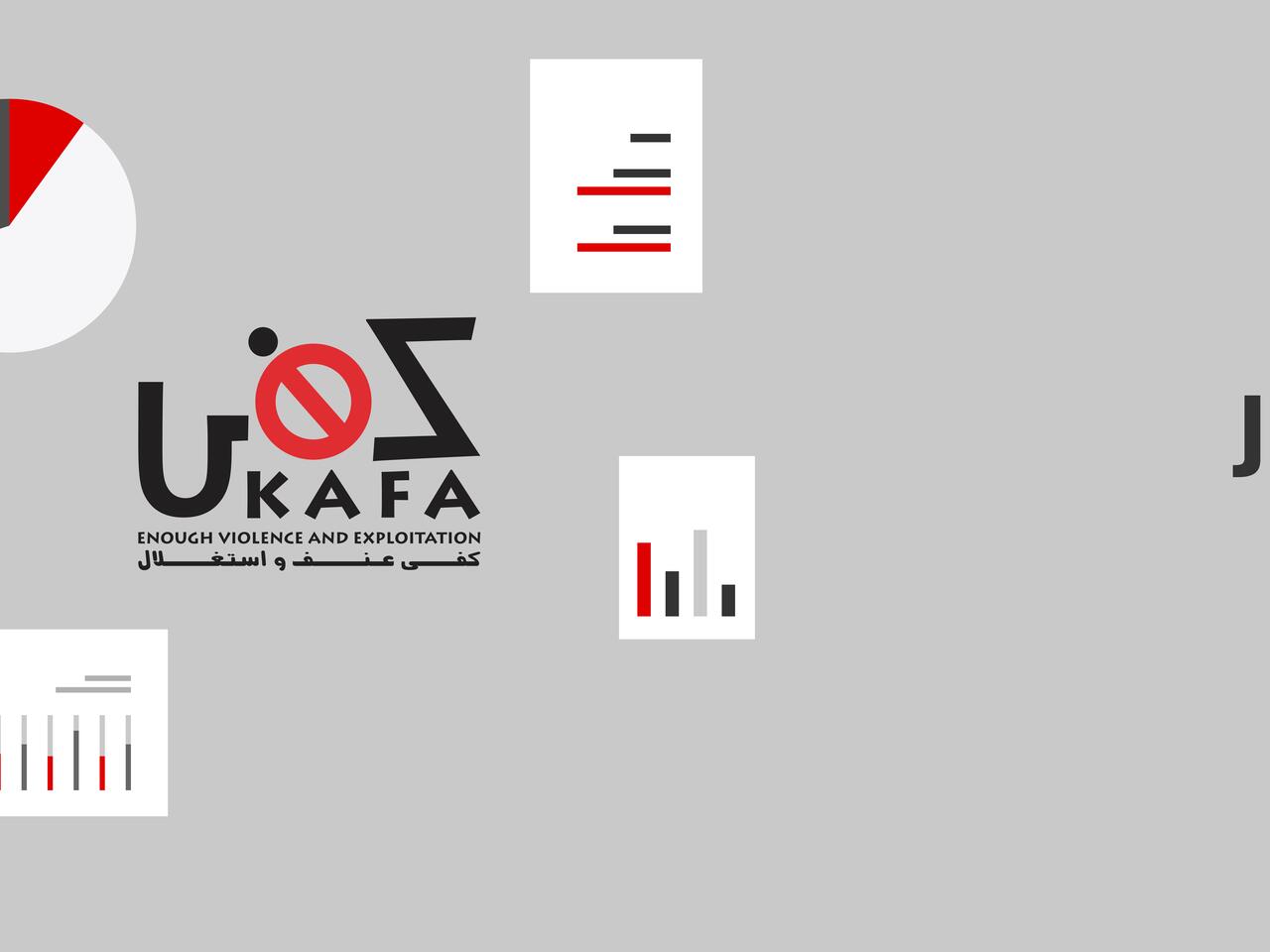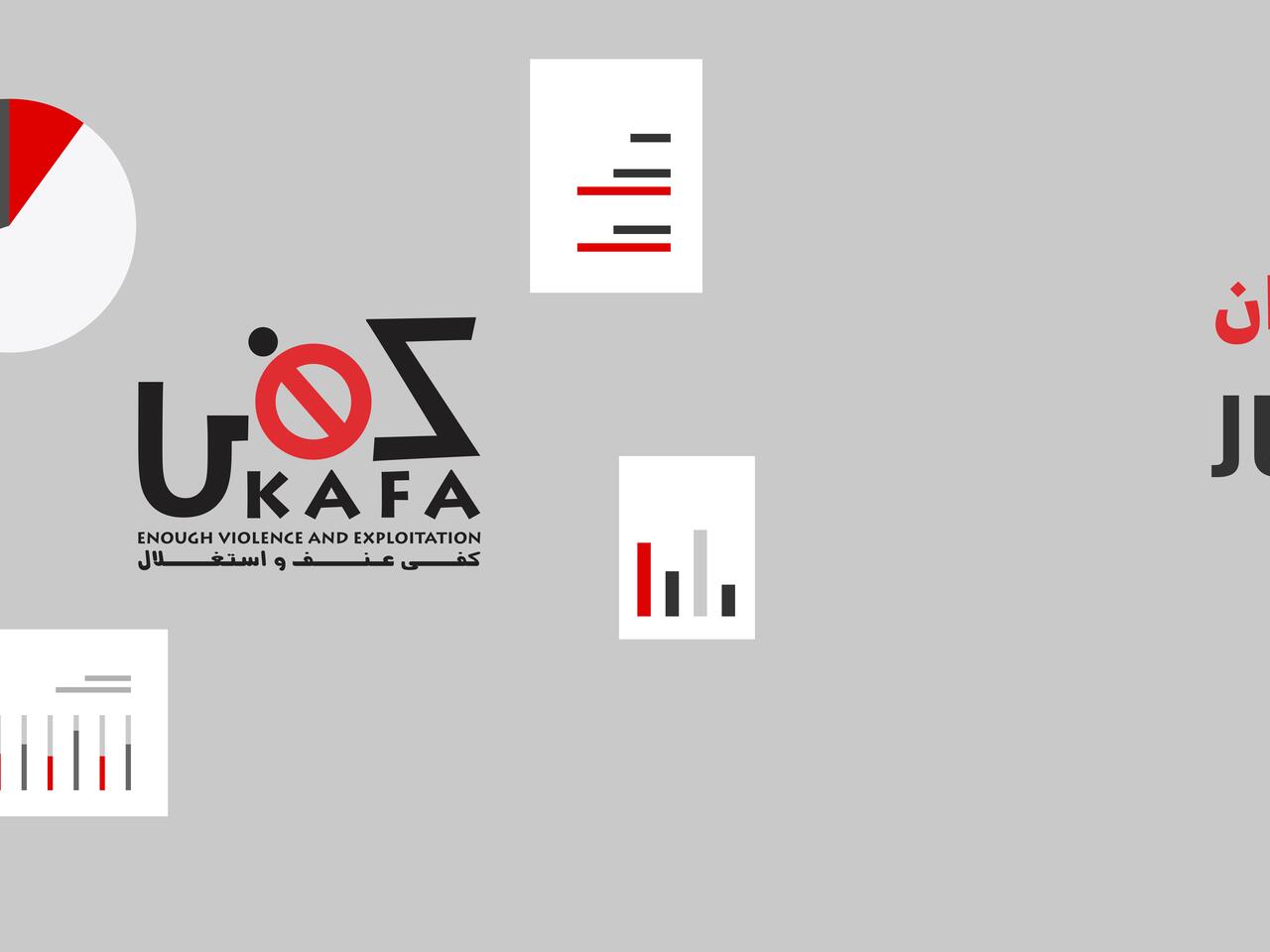Jawaher’s Story: From matchmaker to marriage breaker
“I’m Jawaher El Aassaf, from Idlib. I’ve been living in Lebanon for six years. I’m a matchmaker for people older than 18, and a marriage breaker for people younger than 18.”
This is how Jawaher, a woman in her forties, introduces herself, as she sits in her tent in the Bekaa, recovering after a treatment session she underwent overnight. Despite her sickness, fragility and the difficulties of her life, the strength of her voice and her positive energy fill the place.
“When I hear of a couple wanting to marry their daughter off while she’s still a child, I go over to them, and sit with them once, twice, thrice or more until I convince them not to marry her off. I’m known in the camps, they listen to me because I’m one of them, from the same class and environment. If someone from outside comes to talk to them, they will not accept what that person tries to say. And when I applied what I was promoting to my daughter, they took me more seriously.”
Jawaher’s daughter was only thirteen when she got engaged to her cousin, in line with tribal traditions. She was supposed to marry him at the age of 14.
However, around the time of the engagement, Jawaher was introduced to KAFA’s work through the organization’s activities in the camps. It was during these activities that she discovered things and information that she was not aware of, specifically regarding the risks of child marriage.
This prompted her to stop her daughter’s marriage and to “break the laws.” “When my daughter turns 18 and only if she wants to get married, then I’ll give her away.”
In Idlib, Jawaher was a volunteer nurse and she used to ‘set up’ marriages, some of which were child marriages. “This subject is normal for us. I used to look at my daughter and think she was 20 because she grew tall and, to me, this meant that she was a young lady, when in fact she was still a child. Now I know better. My daughter’s uncle severed ties with me and is still not talking to me.”
Other than the fact that child marriage is a ‘normal’ thing within customs and traditions, the unfortunate situations of refugees increased the ‘acceptance’ of families marrying off their daughters: “The father says my financial state is very bad. I’ll marry her off to live a better life because I’m unable to take care of her, and I want to keep her reputation intact. They are marrying them off in exchange for a sum of money, the girl travels to a different country, and no one knows what’s happening there.”
Jawaher told the story of a 40-year-old man who married a girl aged 13 and traveled with her. Her parents found out that he was making her “work in prostitution,” so they disowned her. “She’s a child who doesn’t understand anything, her husband is asking her to work in prostitution, maybe she thinks it’s normal, and she’s alone with him. Her parents who sold her in the past have now disowned her!”
KAFA’s work in the Bekaa with Syrian refugees began in the year 2014. Maria Semaan, coordinator of the project ‘Child Protection’, said that the organization, at the beginning, had opened an “adolescent-friendly space” in the Bekaa area of Marj, which offered psychological and social services. Then they decided to expand their scope of work and head to residential compounds and camps to carry out the activities there. Unlike other organizations and groups, KAFA did not have a tent in the camps it worked in; instead the activities were carried out with people in their houses and tents. After some time, KAFA started carrying out what is known as ‘peer training’: “A lot of residents in camps were enthusiastic and wanted to train themselves in order to be able to give sessions after us, and to interfere should a problem arise. These sessions were expanded to include both men and women, and their main aim was to ensure the sustainability and continuity of these sessions. Committees were also introduced inside the camps, and their members were trained on ‘preliminary listening’ and on how to provide initial psychological assistance to a person subjected to violence. Each committee began to work in its own camp independently of KAFA.
The number of committees has surged to twenty and they are spread out across 60 unofficial camps in the Bekaa, comprising men, women, and teenagers who learned children protection methods and were educated about women’s rights, effectively becoming ‘change advocates’.
Through their mediation with families over the past two years, the members working on the ‘child protection’ project and the committees were able to stop 26 child marriages.
A member of one of the committees said that he noticed a change, albeit slow, in the behaviors and mentalities of some residents in the camp. He added that in each camp there were influential people advocating for a change. “Jawaher, for example, is the center of authority and influence in her camp and in nearby camps. Any camp resident who knows of child marriages taking place, domestic violence, or even the abandoning of children would report the cases to these people.”
Another young man told the story of two young men who were walking in the camp when they heard the sounds of a man beating up his wife inside a tent. They decided to interfere to try and stop him and “they ended up being beaten up with her.” Such an intervention had never taken place in the past, seeing as residents had considered anything that happens inside the tents as personal and private.
He continued by narrating how the situations of some women have changed, seeing as they started leaving camps to take part in activities. Previously, men were against the idea of their wives going out, but now they have started dropping them off at the desired locations. Also, some women have started working and are now helping out in family expenses.
“I convinced my brother to allow his wife to work. She started selling vegetables inside the tent and generating income,” said Jawaher.
Next to Jawaher, Mohammad, a nine-month-old baby, lies down. Everyone pampers him, carries him and kisses him. Mohammad was abandoned by his parents when he was eleven days old. A lady came and asked Jawaher if she could place Mohammad in the ‘protection section’, which was non-existent at the time, telling her that if it wasn’t possible, then there was a doctor who offered one thousand dollars to take Mohammad. After an investigation conducted by the young men to find out more about the story, and after them telling the police about what exactly happened, Jawaher decided to keep the child with her and raise him up.
“Neither KAFA nor us are providing food parcels, but we are trying, in our own way, to rescue lives,” Jawaher concluded.
* The Child Protection Program at KAFA (CPP) is in partnership with UNICEF and is supported by the European Union and the British Department for International Development

